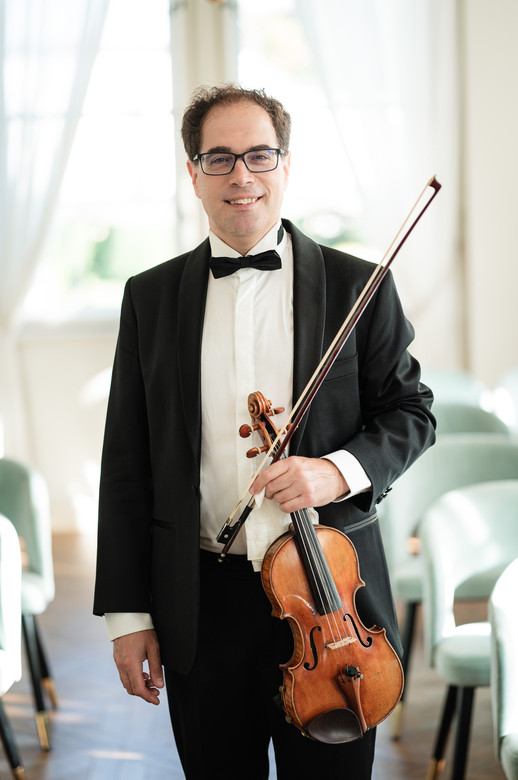Violin

I was eight when I got my first violin from my grandfather. All I learned with this instrument is the merit of two people: my violinist father and professor Dénes Kovács. As a child, of course, I didn’t really understand what my dad was telling me about musical forms or dealing with instruments–I only heard about these years later, during masters’ courses–but I learned whatever I could. After four years, I was admitted to Special Talents Class, where I became a student of Professor Ferenc Halász. At the age of 16, I came in 2nd in the Usti nad Orlici international violin competition. Later, I could learn from Dénes Kovács how to express feelings in an artistic way with the violin. As a student of him, I attended the international violin competition, where, as the youngest competitor, I was a semi-finalist.
This path came natural for me. I loved playing the violin, it was no problem to perform on stage, and, over time, I became part of the musical scene.
However, at the age of nineteen, I decided to learn something else besides music. Since I had always been interested in social and political issues, I planned to graduate from law school.
After receiving both my diplomas, I tried to get a job in consumer protection because I liked the idea of using my help to support people unfamiliar with law.
At the time, I seemed to be accidental to enter a law firm–but soon it became clear that it was the best thing that could have happened. Dr. Róbert Szakál became not only my boss, but also my mentor and friend. At the very first time we met, he told me that he wanted me to learn the profession from him. And so it happened: in the first half year I was almost ’useless’ for the firm, yet he allowed me to be present at his assignements, he even asked my opinion every time. Over time, I was given more independent tasks and was able to learn everything I had not had the chance to learn at the university.
In the last months of my candidacy, János Rolla invited me to the Franz Liszt Chamber Orchestra. There was no question accepting this opportunity: I loved the band's distinctive sound, the peculiar environment–to play there, it was an honor for me. It has been eleven years now, and although music is closer to my soul, I have not given up the legal career either: I have helped the orchestra with legal matters several times. Besides my work at the orchestra, I have passed most of the legal exams and I am preparing to continue.
Emotions are very important for me. No concert will convince me with perfectly clear sounds, but rather with dynamics or its mood–it all makes musicians and audience to feel attached. These are magic moments which could even be perceived as happiness. Plus, I really love the sensitiveness of the violin; playing it is a bit like looking someone in the eye. That is, someone with a sense of emotions cannot be deceived.
Right now, I see my life as a jigsaw puzzle, having all the pieces fallen to the right place.
As a violinist, I became a law candidate. Else, I would not have met a great person to widen my views and to teach me how to look at things from different viewpoints. As a child, I often did not understand why and what my father was teaching me; but if he had not done so, now I would not be so self-conscious with my violin and on stage. The picture is complete, at last.
(Notes by Sarolta Gálfi / www.azember.hu)
.jpg)
